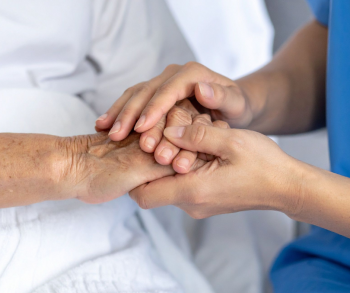Essential Hygiene Tips for Seniors
October 10, 2025

Maintaining proper hygiene becomes increasingly important as seniors age, yet it can also become more challenging due to mobility limitations, chronic conditions, or cognitive changes. Good hygiene practices are fundamental to preventing infections, maintaining dignity, and supporting overall health and well-being. Thankfully, with the help of home care, seniors aging in place gain a better understanding of key hygiene strategies, and how they help them maintain their quality of life.
Essential Daily Hygiene Practices
While many think of home care and focus on how caregivers help with tasks around the home, there are other advantages they offer, such as helping seniors maintain effective hygiene routines. Some of the most important practices for seniors are explored further below.
- Oral Health: Daily dental care prevents serious complications that seniors may face. Brushing twice daily with fluoride toothpaste, flossing, and using antimicrobial mouthwash helps prevent gum disease, tooth loss, and potentially life-threatening infections. For those with dentures, home care can help them with proper cleaning techniques and encourage overnight soaking to prevent bacterial buildup and sores.
- Skin Care Essentials: Aging skin becomes thinner, drier, and more fragile, making daily moisturizing more important than ever. Gentle, fragrance-free cleansers prevent irritation while maintaining the skin's protective barrier. Caregivers can remind seniors to pay special attention to skin folds and areas prone to moisture buildup, as these can harbor bacteria and fungi. They can also inspect for unusual spots, sores, or changes, which helps catch potential problems early.
- Personal Cleanliness Standards: Regular bathing or showering removes bacteria, dead skin cells, and odors while promoting circulation. For seniors with limited mobility, sponge baths or shower chairs can make this process safer and more manageable. Clean clothing changed daily, especially undergarments, prevents bacterial growth and maintains comfort.
Health Benefits That Matter Most
Proper hygiene practices serve as a first line of defense against infections, which can be particularly dangerous for seniors with compromised immune systems. Clean hands prevent the spread of respiratory illnesses, foodborne pathogens, and other communicable diseases. Good oral hygiene reduces the risk of pneumonia, heart disease, and diabetes complications. Regular bathing prevents skin infections, pressure sores, and urinary tract infections.
Beyond physical health, maintaining hygiene supports mental well-being and social connections. Feeling clean and well-groomed boosts self-esteem and confidence, encouraging seniors to remain socially active. This psychological benefit directly impacts overall health outcomes and quality of life.
How Home Care Provides Essential Support
Beyond the tasks mentioned above, trained caregivers can also assist with bathing and helping seniors safely navigate shower transfers while maintaining dignity and privacy. They can also provide gentle reminders for medication schedules that might affect oral health. Additionally, caregivers can manage laundry, ensuring clean clothing and linens are always available, as well as assist with shopping for proper hygiene supplies and help establish sustainable routines that work within the senior’s capabilities and preferences.
Perhaps most importantly, home care offers companionship and emotional support, making hygiene routines feel less burdensome and more like collaborative self-care. They can adapt techniques as needs change and communicate with healthcare providers about any concerning developments.
Part of successful hygiene maintenance is creating realistic, sustainable routines. Caregivers can break tasks down into smaller, manageable steps to prevent seniors from getting overwhelmed, as well as suggest adaptive equipment like long-handled sponges or shower benches, which increase independence while ensuring safety.
With the help of home care professionals, seniors can maintain their hygiene standards while preserving dignity and independence. As such, they are able to remain in their homes for years to come.
If you or your loved one is looking for Home Care in San Jose, CA, please call Familiar Surroundings Home Care.
Santa Clara County: (408) 979-9990
San Mateo County: (650) 353-9777
Santa Cruz County: (831) 480-3990


